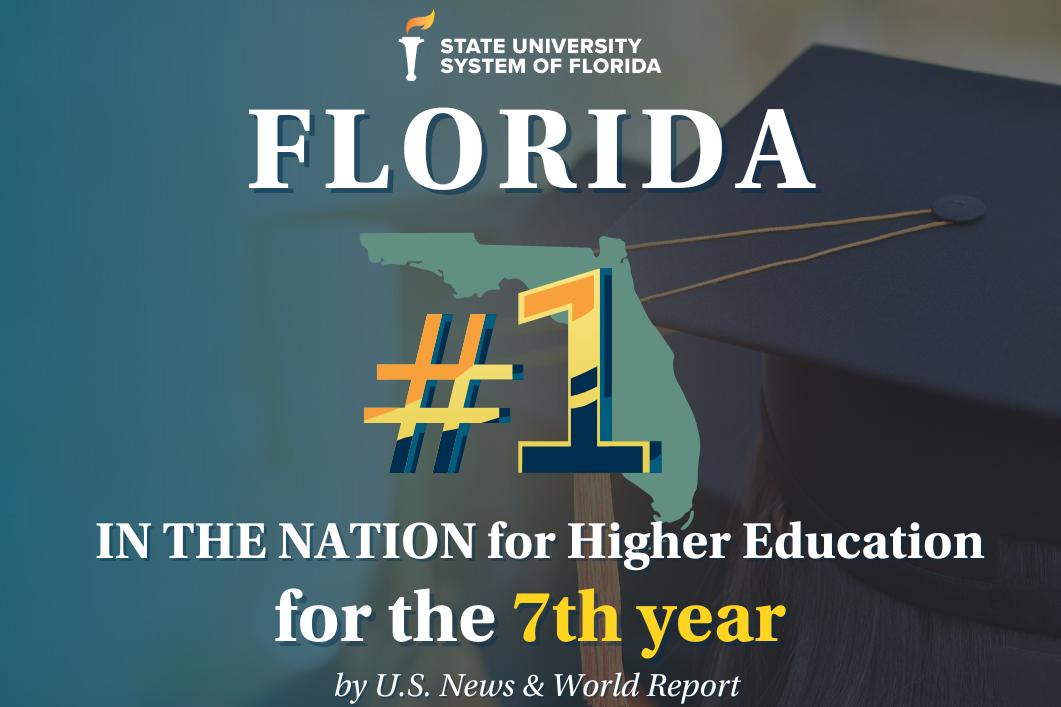Florida has been named the top state for education and higher education in the U.S. News & World Report’s 2024 Best States rankings, marking its second consecutive year at the pinnacle. This achievement, announced on May 7, 2024, highlights Florida’s exceptional performance in both K-12 and post-secondary metrics, driven by a commitment to affordability, accessibility, and academic excellence. Governor Ron DeSantis and Commissioner of Education Manny Diaz, Jr., have credited policies emphasizing core academics and parental choice for the state’s success.

In higher education, Florida shines with the nation’s second-highest graduation rates for two- and four-year public institutions. The state offers the lowest average in-state tuition and fees, making college accessible to more students. With an average bachelor’s degree cost of $3,000 after financial aid, Florida ensures graduates enter the workforce with minimal debt—$24,454 compared to the national average of $29,300. The State University System, encompassing 12 universities and over 430,000 students, has held the top spot for higher education since 2017, bolstered by a $1 billion funding increase in 2023.
Florida’s K-12 system ranks 10th nationally, excelling in college readiness, with nearly half of 12th-graders scoring competitively on the SAT or ACT. The state boasts a 90.2% high school graduation rate, surpassing the national average by nearly 4%. However, challenges remain, with Florida ranking 21st in eighth-grade reading and 32nd in math on the National Assessment of Educational Progress. Critics, including the Florida Education Association, argue that the rankings reflect a narrow view, and policies limiting curriculum content could impact future scores. The state also ranks 44th in per-student public school spending, raising concerns about resource allocation.
Florida’s education model has sparked debate. DeSantis’s reforms, including banning diversity programs and regulating classroom materials, have drawn praise for prioritizing academics and criticism for restricting educational freedom. Despite controversies, Florida ranks first in the Parent Power Index and Education Freedom Report Card, reflecting robust school choice and transparency. Posts on X echo mixed sentiments, with some lauding Florida’s affordability and others questioning K-12 quality.
The state’s success is attributed to strategic investments and accountability measures, such as performance-based funding and a transparent university system dashboard. Chancellor Ray Rodrigues emphasized the focus on student success and low costs, while critics like Akil Bello argue the rankings overemphasize metrics like graduation rates, which may reflect financial rather than academic factors. Florida’s universal school choice program, empowering parents to direct education funds, has further solidified its leadership.
As Florida navigates its educational landscape, the balance between reform and inclusivity remains critical. With 71,230 undergraduates expected to graduate from its public universities in 2024, the state is poised to maintain its edge. Whether Florida retains its top ranking in 2025 will depend on addressing K-12 gaps while sustaining higher education excellence, all amid ongoing policy debates.






